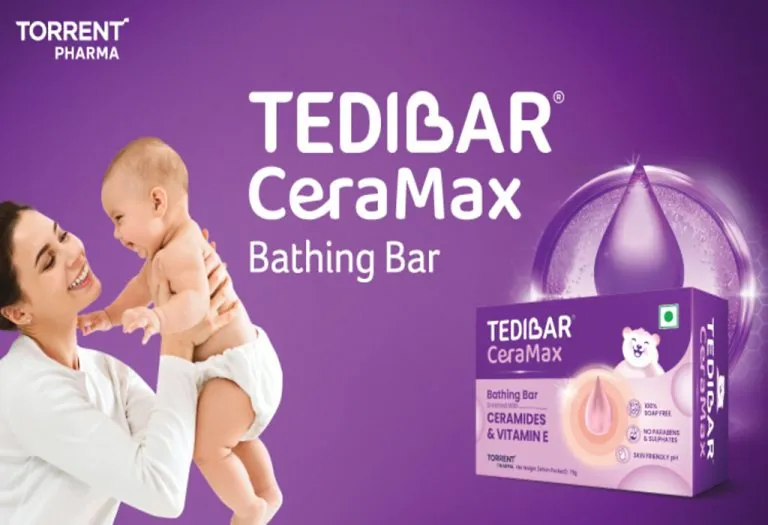Probiotics for Infants: When to Introduce, Benefits & Side Effects
- What Are Probiotics?
- Does Your Infant Need Probiotics?
- When Can You Introduce Probiotics to Your Child?
- Amazing Benefits of Probiotics for Infants
- Sources of Probiotics
- How Can You Give Probiotics to Infants?
- Are There Any Side Effects of Probiotics on Babies?
- Can Infants With Lactose Intolerance and Milk Allergy Have Probiotics?
- FAQs
When a child enters your life, everything centers around the newborn. All problems seem trivial compared to baby-related concerns, prompting constant questioning by parents. The primary duty is ensuring the child’s holistic health.
A child’s diet significantly influences development throughout childhood. Despite endless questions, answers exist, empowering parents to make informed choices. Diet inquiries persist, covering breastfeeding, liquid diets, and solid food. Providing essential supplements is crucial for optimal growth.
Probiotics are a key support for your growing child, profoundly impacting digestive health and nutrient absorption. This article explores why probiotics for babies are an excellent choice for your child’s well-being.
What Are Probiotics?
Probiotics are mainly made up of friendly bacteria, which colonize the gut of the infant (1). The bacteria and fungi contained in the probiotic supplement work in tandem with the microorganisms existing already in the gut, and help them fight off any invading organisms. Probiotics or gut bacteria play a vital role in supporting the immune system of the child. The most common types of such friendly bacteria include Lactobacillus, Bifidobacterium, Streptococcus and Saccharomyces Boulardii.
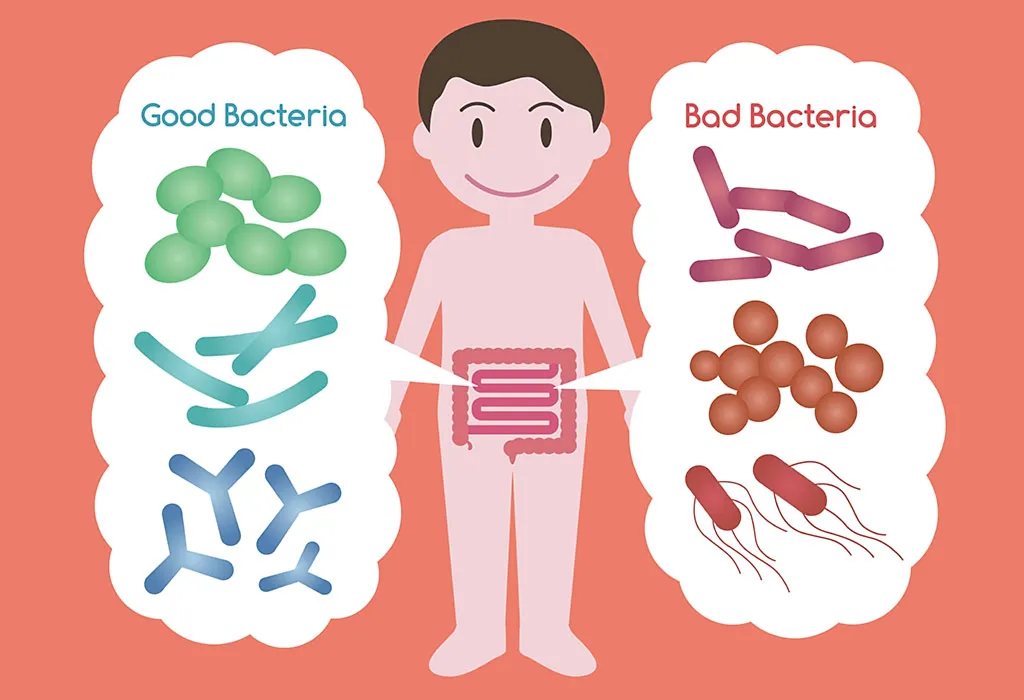
Does Your Infant Need Probiotics?
Probiotics for newborns are not recommended by doctors, as they are considered unnecessary. A newborn child has a sterile intestine, which means that there are no bacteria present in the gastrointestinal tract. These bacteria are actually unnecessary at the time, as the baby is not exposed to any other food than breast milk. By the first birthday, children acquire healthy gut flora from the breast milk they drink, and with a diet of yoghurt also given to the child, probiotics are not deemed necessary for children. However, if the child undergoes periods of severe vomiting or diarrhoea or has recently undertaken a long course of antibiotics, doctors recommend that the child be given probiotics. These ensure that healthy gut flora return to the intestinal tract and the immune system of the child is strengthened again. Therefore, they must be given to the child if the child was administered antibiotics. Other reasons for providing probiotics to babies are ear infections, eczema, baby thrush, diaper rash, or constipation.
It is to be always remembered that one should not start with probiotics on their own, as there are different types of them and it’s best to be advised by the doctor. Natural foods containing probiotics, such as curd, buttermilk, etc., are safe to consume and can be taken without any consultation.
When Can You Introduce Probiotics to Your Child?
Natural probiotics can be introduced to children from an early age, as they do not have any harmful effects on the child. However, they are not necessary for children whose diet only consists of breast milk. Only after the child starts on a diet of solid food, probiotics are usually given. This is because the exposure of the child to the environment is higher, thus putting the child at risk of being attacked by dangerous microorganisms. Still, your child might be getting enough friendly bacteria from normal food items, such as yoghurt and vegetables. Probiotics are introduced earlier to children if they have been given antibiotics constantly. This is because those medicines usually remove the bacteria which have colonized the gut, making your intestinal tract gullible to infections and attacks.
Amazing Benefits of Probiotics for Infants
Probiotics literally translate to ‘for life’, which is apt considering how vital friendly bacteria in the gut are. Infants have many benefits to be gained from consuming probiotics, and a few of those are listed below.
1. No More Reflux
It has been proven that probiotic bacteria can reduce the symptoms of reflux occurring in the digestive tract of babies to a great extent. The bacteria present in the probiotics help the child digest his food well in the stomach, and simultaneously reduce the chances of reflux, dyspepsia or other similar conditions occurring.
2. Constipation
Constipation is the telltale sign of an unhealthy digestive system, especially in infants. The results of an Italian study pointed toward the fact that giving probiotics regularly to infants can improve the regularity of their bowel movements, even in infants with a history of constant constipation problems.
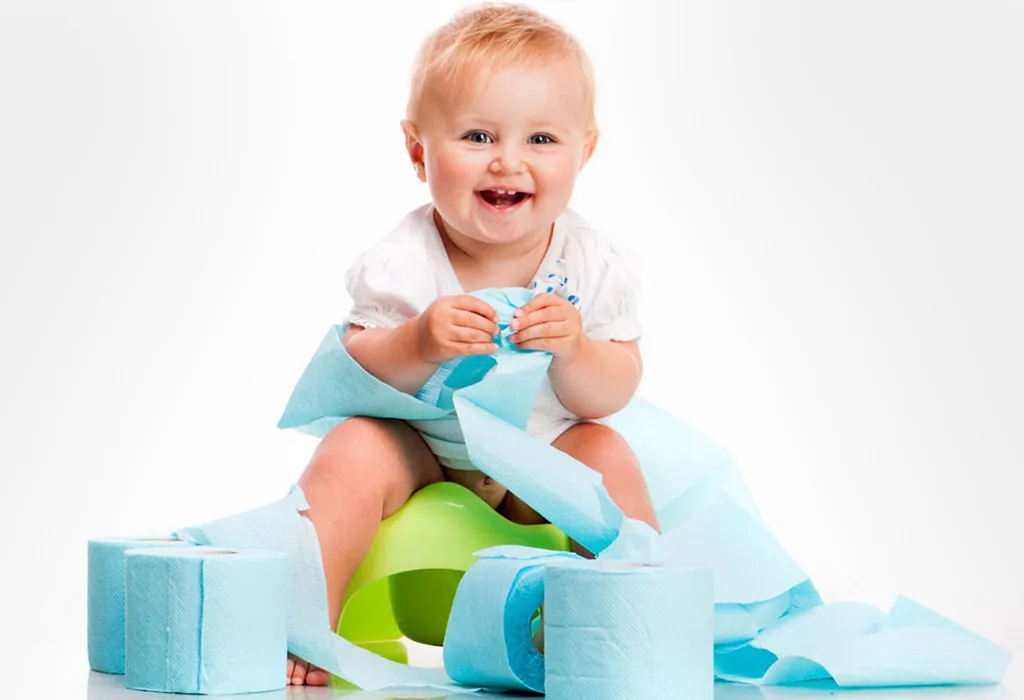
3. Reduces Diaper Rash
Diaper thrush or diaper rash is a common condition that is caused by yeast in babies. Probiotics containing friendly bacteria like Lactobacillus and Bifidobacterium can not only help in the healing of existing rashes but also prevent these rashes from affecting the baby again. In most cases, this condition occurs as a result of the usage of antibiotics for a long time.
4. Infant Thrush
Sometimes, children get oral thrush from their mothers as a result of breastfeeding through infected nipples. These rashes may become a chronic condition, and cause a lot of pain to your child- it is advisable to go to the doctor if the condition worsens. Probiotic supplements containing Acidophilus bacteria are best for preventing this condition, and the supplement is usually available in the powdered form too.
5. Reduces Eczema
Elaborate studies have found that the consumption of probiotic bacteria can alleviate the symptoms of eczema in infants. This disease is characterized by the red, itchy rashes that occur on the skin of the baby, and it can be reduced by giving your child probiotics.
6. Gassiness in Children
The use of Probiotics for babies with gas has been proven to have great effects and has reduced the symptoms of gassiness and colic in the child. Probiotic supplements containing Lactobacillus reuteri, which is a friendly bacterium, aid in digestion and also reduce inflammation of the intestines. The main cause of this condition is that the balance of harmful and friendly bacteria in the intestine has shifted towards the former, and probiotics make it balanced again.
7. Diarrhoea
Diarrhoea is characterized by the frequent passing of stools, which have a liquid consistency. Diarrhoea is a symptom that something is not well in the digestive system of the child, so probiotics for babies with diarrhoea are often recommended by doctors. With these supplements recolonizing the gut, the digestive system of the baby starts to work well again quickly.
8. Infections
Are probiotics safe for infants with infections? The answer is a resounding ‘yes’. Probiotics are necessary for the re-colonization of the gut by friendly bacteria, most of which disappear because of the antibiotics course administered to the child.
Sources of Probiotics
There are two major sources of probiotics for babies, both of which are listed below:
1. Probiotic-rich foods for Babies
For newborns, breast milk contains enough probiotics for the digestive system of the child. These friendly bacteria colonize the gut so that the digestion of the baby proceeds smoothly. Else, infant formulas usually contain Bifidobacterium Lactis, which is also present in breast milk- this can be given to the child on a regular basis. For children who are a little older than the age of breastfeeding, food items rich in healthy bacteria can be given. Yoghurt is an example of a common food item rich in probiotic bacteria- otherwise, you can opt to give your child baby foods containing probiotics.
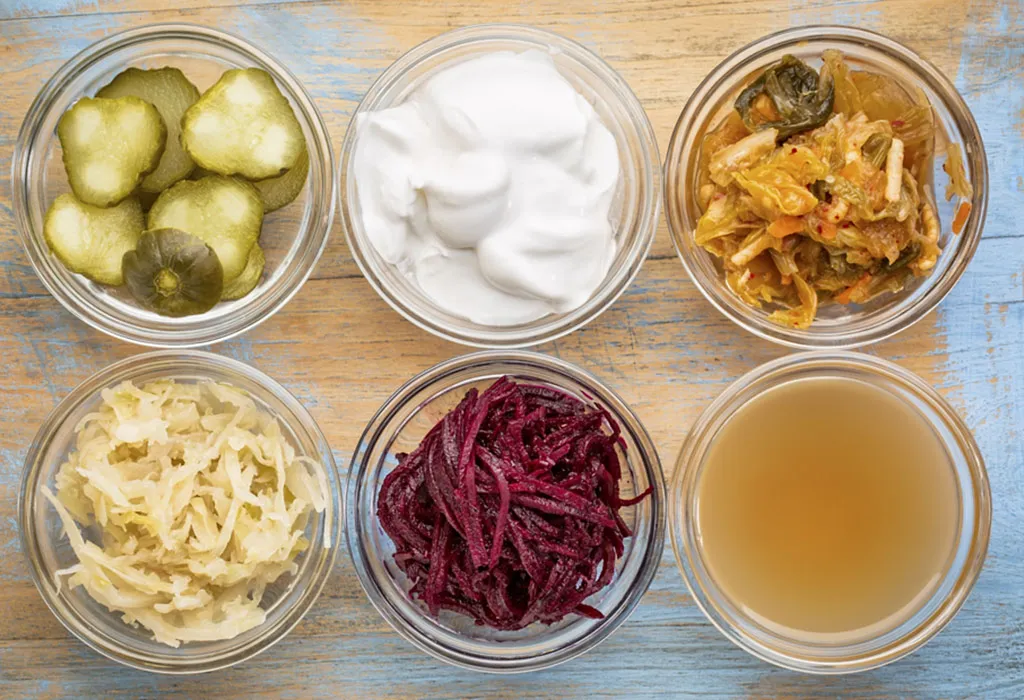
2. Supplements
For children and infants, probiotic supplements can be bought in powdered form. This is not only easy to use but also easy to administer to the child. The easiest way to give probiotics to the child is to dip your finger in the powder and let your child suck the powder off your finger. Otherwise, you can also mix it into his regular diet- be it breast milk, formula or baby food. If the baby stops consuming these probiotic bacteria, it has been found that the amount of bacteria in the intestine drops to its normal levels in a matter of days.
How Can You Give Probiotics to Infants?
Probiotics are available in liquid and powder forms, both of which are easy to give to the child. The supplements in the liquid form can be mixed into the regular diet of the child, be it breast milk or solid food. It can also be given to the child directly. If the supplement is in powdered form, you can dip your finger in it and make your child suck the powder off your finger. This also ensures that the supplement is absorbed by the body instantly.
Are There Any Side Effects of Probiotics on Babies?
There are no lasting side effects of probiotics on the baby, although there may be a few problems in the initial few days of starting probiotic intake. These are mild digestive problems, like flatulence, bloating, abdominal pain, constipation or diarrhoea. They occur as a result of the balance changing in the intestine, because of the shift to a higher number of friendly bacteria colonizing the gut. If the symptoms persist, you can try reducing the dosage and increasing it slowly.
Can Infants With Lactose Intolerance and Milk Allergy Have Probiotics?
Infants with lactose intolerance or milk allergy can still potentially benefit from probiotics. Probiotics are live microorganisms that may provide health benefits when consumed in adequate amounts. However, it’s crucial to consult with a pediatrician before introducing probiotics or any new dietary supplement to an infant, especially if they have specific health conditions.
- For lactose intolerance: Lactose intolerance is the inability to digest lactose, a sugar found in milk and dairy products, due to a deficiency of the enzyme lactase. Probiotics, particularly those containing lactobacilli and bifidobacteria strains, may help improve lactose digestion by promoting a healthy balance of gut bacteria.
- For milk allergy: Milk allergy, on the other hand, is an immune response to proteins in milk, such as casein or whey. Probiotics don’t contain these milk proteins and, in some cases, may help modulate the immune system, but individual responses can vary.
FAQs
1. Do Babies Born Via Cesarean Delivery Require Probiotics?
Probiotics may be beneficial for babies born via cesarean delivery to promote a healthy gut microbiota. Consult with a pediatrician to determine specific recommendations based on the baby’s health.
2. Is It Safe for Infants to Consume Probiotics Every Day?
Generally, it’s safe for infants to consume probiotics daily but consult with a pediatrician for appropriate dosage and specific strains. Individual responses may vary, and professional guidance ensures safety.
3. How Long Does It Take for Baby Probiotics to Work?
The time it takes for baby probiotics to show effects varies. Improvement in digestive issues or overall health may be noticed within a few days to weeks. If concerns persist, consult with a healthcare professional for personalized advice.
Newborn probiotics are a must for the little ones, as they greatly enhance the immunity and digestive stability of the child. They can reduce common problems like diaper rashes, eczema, constipation and diarrhoea, and play a pivotal role in the nutrition absorption of the child. Natural probiotics can be added to the diet as soon the baby starts to take outside food after 6 months but over-the-counter ones should be given only after consultation with the doctor.
References/Resources:
1. Probiotics: What You Need To Know; National Center for Complementary and Integrative Health; https://www.nccih.nih.gov/health/probiotics-what-you-need-to-know
2. The benefits of probiotics bacteria; Harvard Health Publishing; https://www.health.harvard.edu/staying-healthy/the-benefits-of-probiotics
3. Probiotics; Cleveland Clinic; https://my.clevelandclinic.org/health/treatments/14598-probiotics
4. Feeding Your Baby: The First Year; Cleveland Clinic; https://my.clevelandclinic.org/health/articles/9693-feeding-your-baby-the-first-year
5. Probiotics; The Ohio State University; https://ogg.osu.edu/media/documents/Herbs/Probiotics_OSUFinal.pdf
6. Probiotics may ease constipation; Harvard Health Publishing; https://www.health.harvard.edu/blog/probiotics-may-ease-constipation-201408217377
7. Moossavi. S, Miliku. K, Sepehri. S, Khafipour. E, Azad. M; The Prebiotic and Probiotic Properties of Human Milk: Implications for Infant Immune Development and Pediatric Asthma (Frontiers in Pediatrics); National Library of Medicine; https://www.ncbi.nlm.nih.gov/pmc/articles/PMC6095009/; July 2018
Also Read:
Medicine for Baby
Bronchitis for Infant
Nebulisation for Babies
Was This Article Helpful?
Parenting is a huge responsibility, for you as a caregiver, but also for us as a parenting content platform. We understand that and take our responsibility of creating credible content seriously. FirstCry Parenting articles are written and published only after extensive research using factually sound references to deliver quality content that is accurate, validated by experts, and completely reliable. To understand how we go about creating content that is credible, read our editorial policy here.







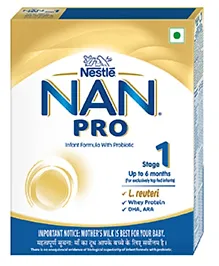


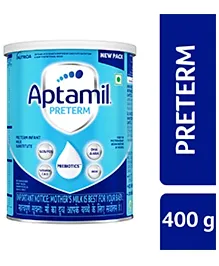
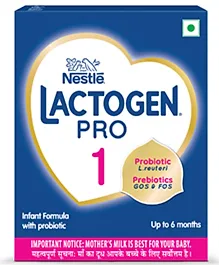
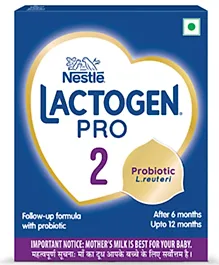
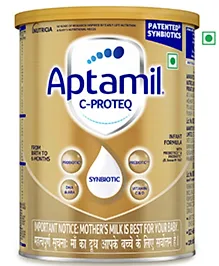


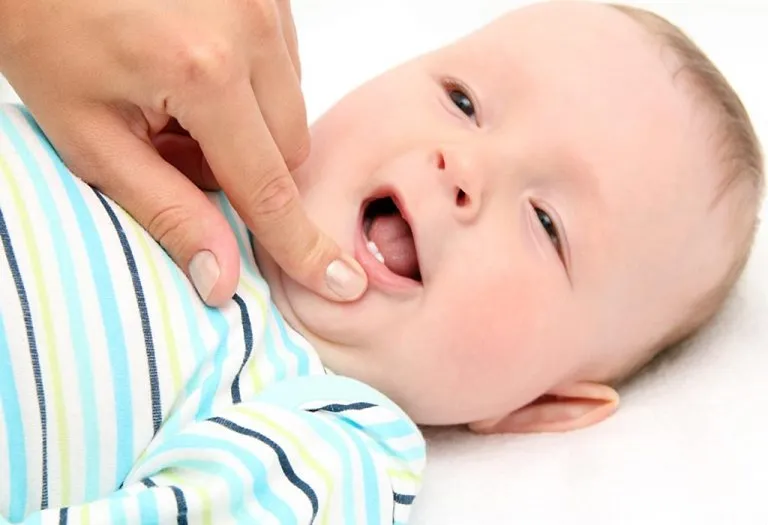





.svg)










